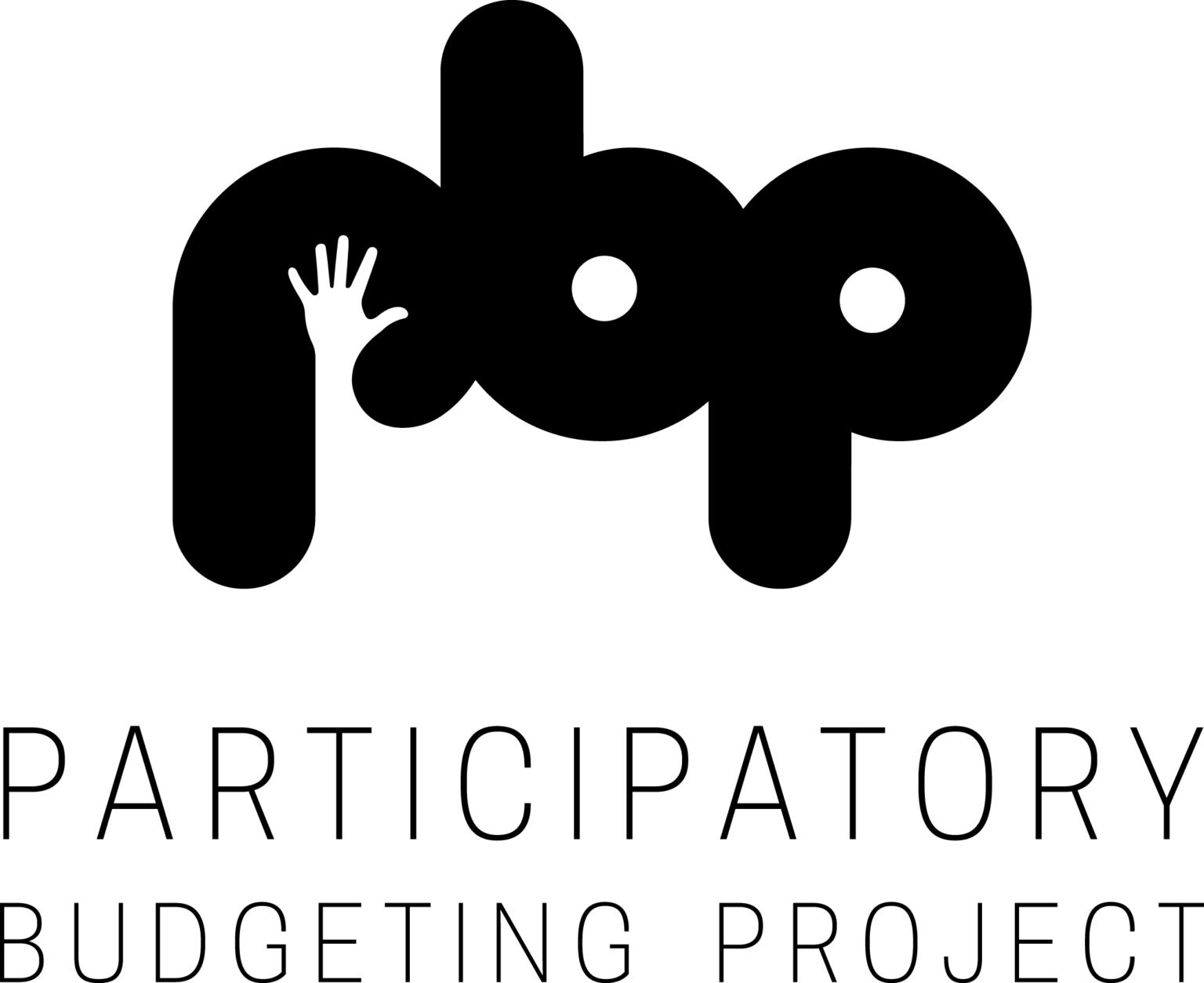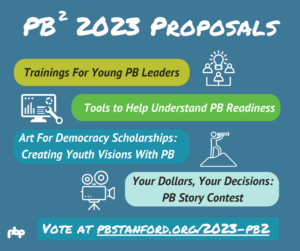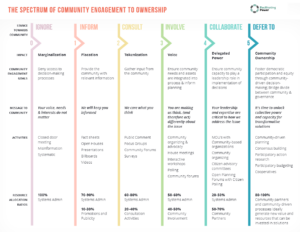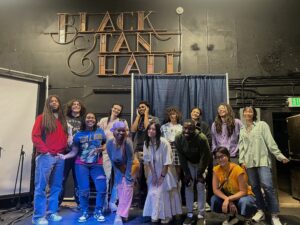DEADLINE FOR PROPOSALS: December 18, 2015
www.pbconference.org | conference@participatorybudgeting.org | www.pbconference.org/submit
4th International Conference on Participatory Budgeting in North America
Presented by the Participatory Budgeting Project (PBP) in partnership with the City of Boston.
May 20-22, 2016
Boston, MA
In cities across North America, budget crises are leading to painful cuts in public services and infrastructure – especially for communities with the greatest needs. Community members are usually left on the sidelines during public budgeting, with little power to shape the spending decisions that affect their lives.
Participatory Budgeting (PB) offers an alternative – a more democratic and accountable way to manage public money. PB is a democratic process in which community members directly decide how to spend part of a public budget. First used in Brazil in 1989, there are now over 3,000 participatory budgeting programs around the world. Most are for city budgets, but counties, states, towns, housing authorities, schools, universities, and other institutions have also used PB to give people real power over real money.
Interest in PB in North America has skyrocketed in recent years. PB has grown from just a few experiments to over 50 PB processes in cities, schools, and universities – with dozens of other cities currently organizing for PB. So far, over 100,000 people in the United States and Canada have used PB to allocate $98 million.
The 4th International Conference on Participatory Budgeting in North America, organized by the Participatory Budgeting Project (PBP), will take place in Boston, Massachusetts, USA during the voting phase of their award-winning, city-wide, youth PB process.
The conference is a space for participants and organizers of PB processes to share and reflect on their experiences so far, alongside interested activists, practitioners, scholars, elected officials, and civic designers.
2016 Conference Themes
Youth power through PB
PB in schools, youth-only processes, and nearly every other PB process in North America uniquely gives real power to young people – as young as 11! What can we do to encourage even more youth leadership with PB?
PB in practice
What is working well? What has been less successful? What improvements can be made in the way the process is implemented? How can we do better and be more effective with existing PB processes and how can we put more processes in place across North America and around the world.
Measuring impact
How do we define a good PB process? What are the best ways to define success in this context? What are innovative, effective tools and methods we can use to assess the impact of processes that are currently underway as well as to shape new PB processes.
Initial Conference Schedule
Friday, May 20
- PB Training Workshops (separate registration)
- Evening Opening Plenary
Saturday, May 21
- Concurrent Panels and Workshops
- PB Vote Observations
- Evening Networking or Social Event
Sunday, May 22
- Concurrent Panels and Workshops
- PB Vote Observations
- Closing Plenary
Session Types
We encourage presenters to submit proposals for a variety of session formats. These may include, but are not limited to: panel discussions, interactive workshops, presentations, videos and other creative formats. Sessions are scheduled to last about 1.5 hours, but some sessions may group together shorter activities. All listed formats are welcome, but we’re especially looking for proposals that:
- encourage participant interaction, discussion, and/or skill-sharing;
- showcase a diversity of opinions, experiences, and backgrounds;
- are accessible to people of any background or experience level;
- promote new collaborations.
Panel Discussions
Panel discussions should be moderated by a facilitator (please indicate in your proposal whether you would like us to identify a facilitator) and should include 3-4 speakers. Panels should leave adequate time for discussion.
Interactive Workshops
Workshops should engage participants in discussions or activities designed to foster learning, dialogue, or debate. Workshops can be led by a single person or organization, though we encourage collaboration between facilitators. “Presenting” by workshop facilitators should be limited. Making sessions fun for participants is encouraged.
Presentations
Presentations of PB experiences and academic papers are also welcome. Conference organizers will group presentations together based on subject, geography, or theme. Academic paper presentations will be limited to 15 minutes, and all presenters should be prepared for discussion with other participants.
Videos and Other Creative Formats
We welcome video screenings and other artistic or expressive session proposals that address PB and the Conference themes.
Registration will open in January.
Early registration will end in April.
Note: There will be a separate registration for the day of PB Training before the Conference.
Submission Guidelines
Session proposals should include the following information:
- Type of Submission (panel discussion, interactive workshop, presentation, academic presentation, other)
- Name(s) and affiliations of panelists, workshop leaders, or presenters
- Abstract or Session Description (200-400 words)
- Short bio paragraphs for each presenter, panelist, or workshop leader (150 words)
- Materials & A/V Requirements
- Other considerations (space requirements, interpretation needs, scheduling requests, etc.)
Submit proposals via the following online form: www.pbconference.org/submit
DEADLINE FOR PROPOSALS: December 18, 2015
www.pbconference.org | conference@participatorybudgeting.org





